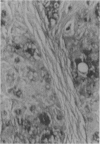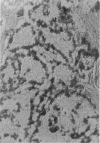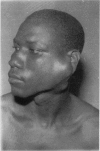Abstract
There is presently no uniformly accepted grading system for mucoepidermoid carcinoma, largely due to a lack of consensus as to what criteria should be used to formulate histological grades. The present study was undertaken to determine the relationship between histological grade, clinical stage and survival in these neoplasms. Clinical and histological data from 34 patients with mucoepidermoid carcinoma were reviewed. Mucoepidermoid carcinoma was most common in the parotid gland (44.1%), while 25% of patients had tumors in the minor salivary glands. Low, intermediate, and high-grade neoplasms accounted for 61.7%, 26.5%, and 11.8% of tumors, respectively. There was a general trend towards increasing clinical aggressiveness with increasing histological grade. Similarly, postoperative tumor recurrences were marginally more common in high-grade than in low-grade mucoepidermoid carcinomas. However, both of these findings were statistically insignificant, mainly due to small sample size, late clinical presentation, poor clinical follow-up, incomplete management and incomplete records. These factors explain the relatively low survival figures in the present study, as compared to higher survival figures in white patients with mucoepidermoid carcinoma.
Full text
PDF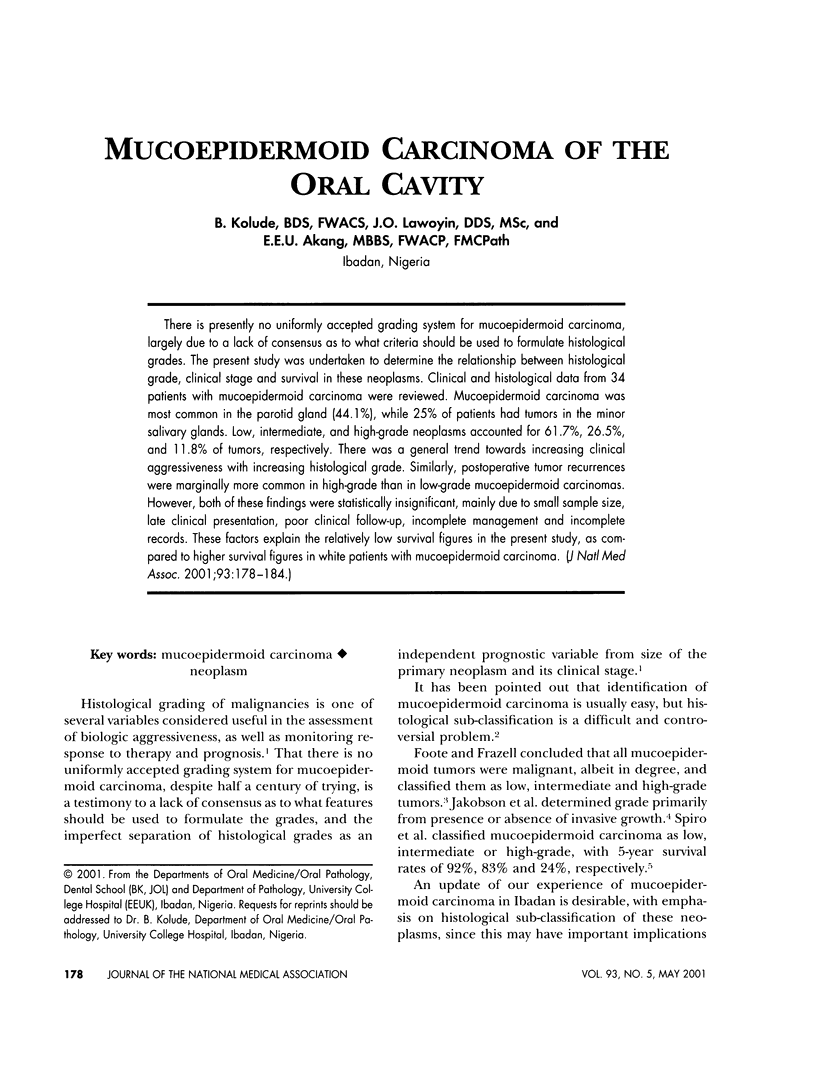
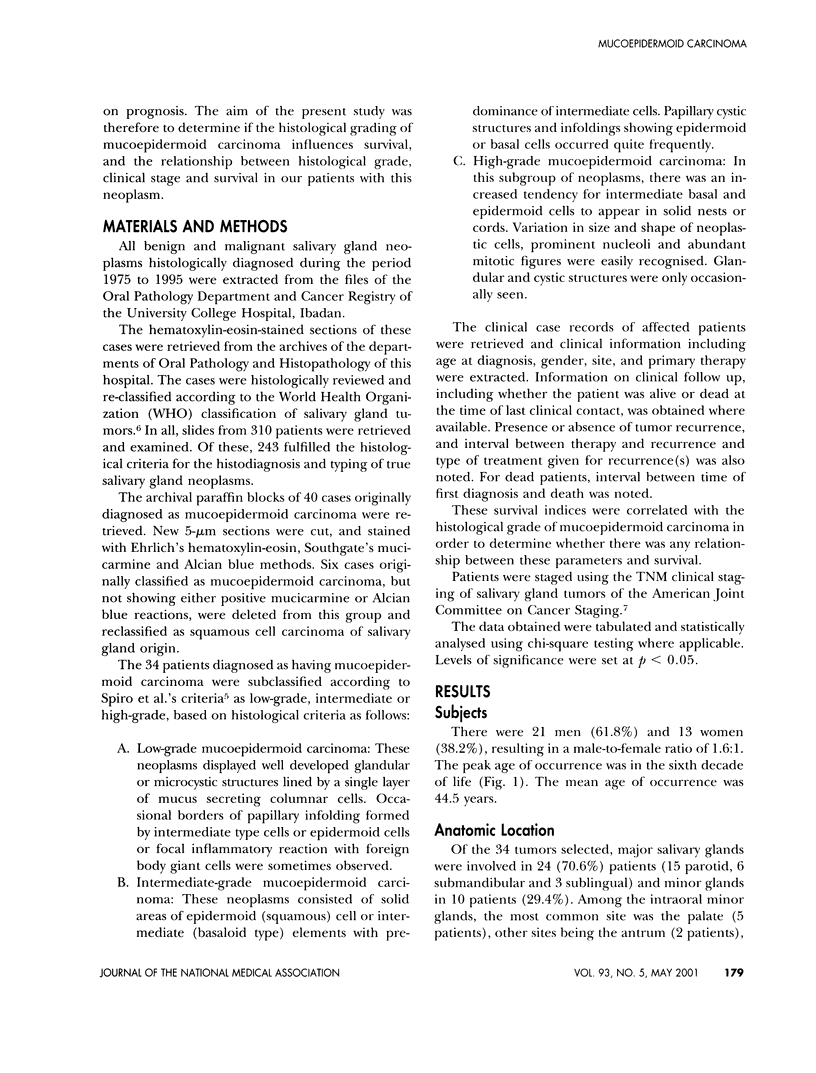
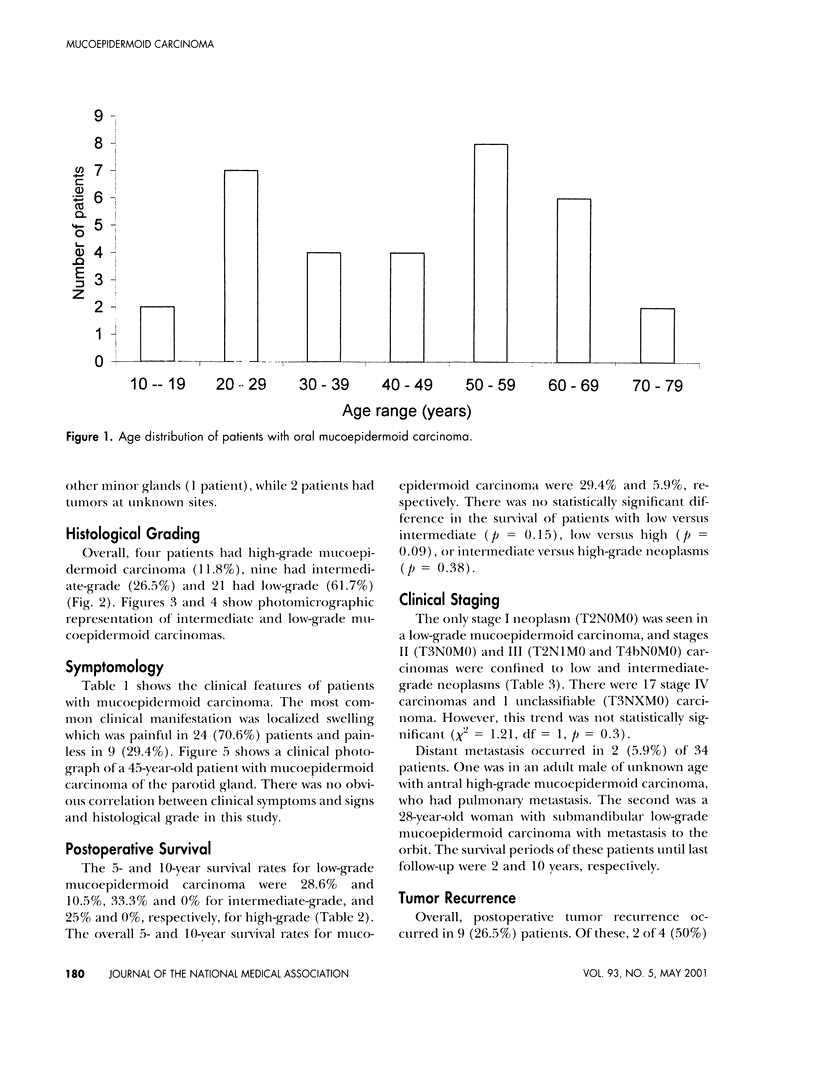
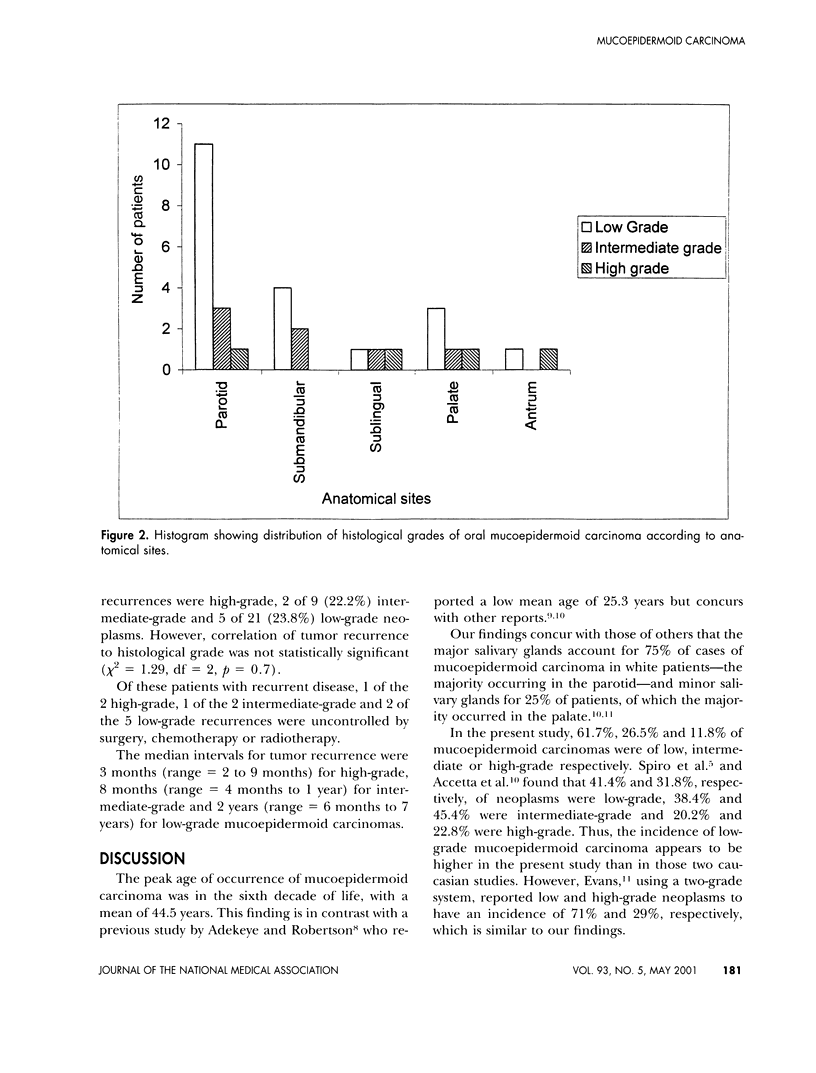
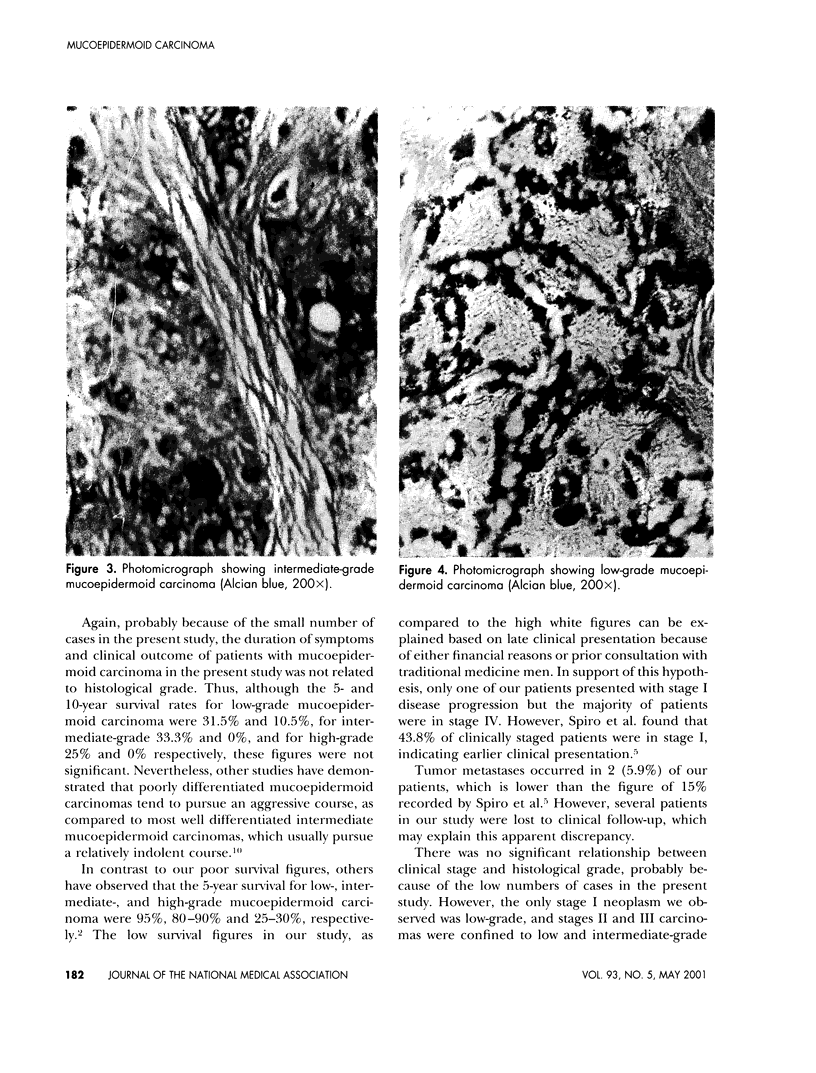
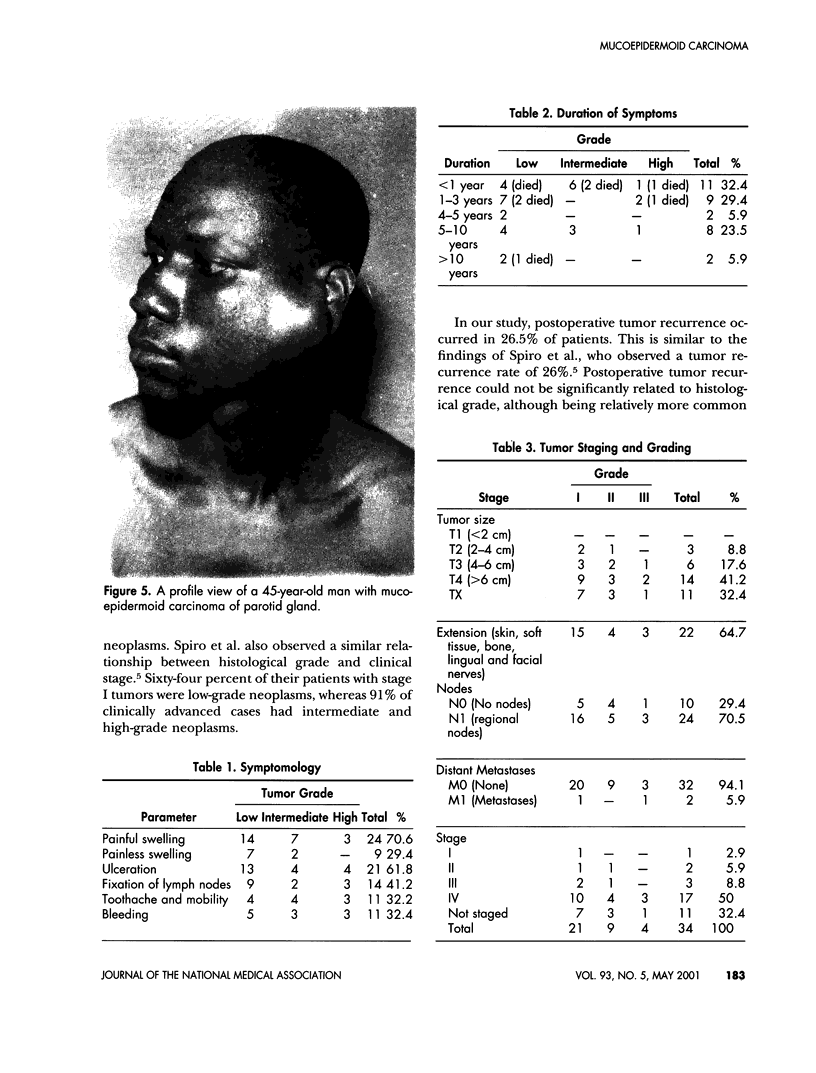
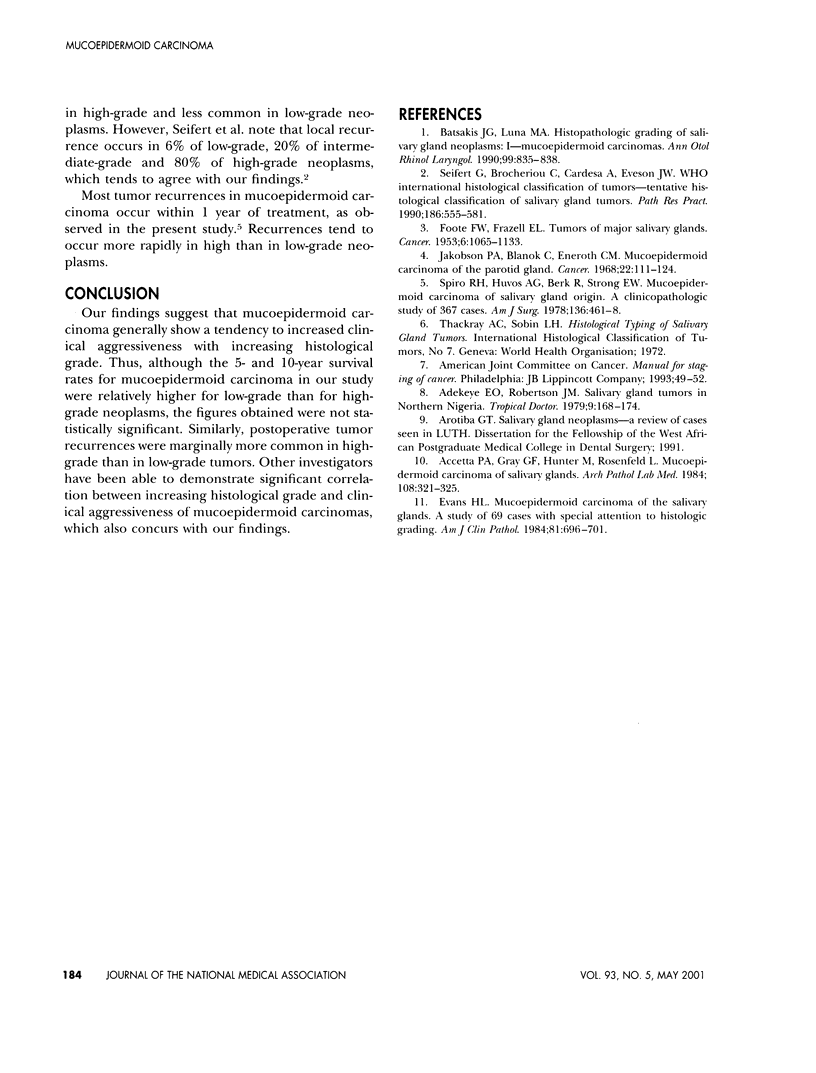
Images in this article
Selected References
These references are in PubMed. This may not be the complete list of references from this article.
- Accetta P. A., Gray G. F., Jr, Hunter R. M., Rosenfeld L. Mucoepidermoid carcinoma of salivary glands. Arch Pathol Lab Med. 1984 Apr;108(4):321–325. [PubMed] [Google Scholar]
- Adekeye E. O., Robertson J. M. Salivary gland tumours in Northern Nigeria. Trop Doct. 1979 Oct;9(4):168–174. doi: 10.1177/004947557900900417. [DOI] [PubMed] [Google Scholar]
- Batsakis J. G., Luna M. A. Histopathologic grading of salivary gland neoplasms: I. Mucoepidermoid carcinomas. Ann Otol Rhinol Laryngol. 1990 Oct;99(10 Pt 1):835–838. doi: 10.1177/000348949009901015. [DOI] [PubMed] [Google Scholar]
- Evans H. L. Mucoepidermoid carcinoma of salivary glands: a study of 69 cases with special attention to histologic grading. Am J Clin Pathol. 1984 Jun;81(6):696–701. doi: 10.1093/ajcp/81.6.696. [DOI] [PubMed] [Google Scholar]
- FOOTE F. W., Jr, FRAZELL E. L. Tumors of the major salivary glands. Cancer. 1953 Nov;6(6):1065–1133. doi: 10.1002/1097-0142(195311)6:6<1065::aid-cncr2820060602>3.0.co;2-0. [DOI] [PubMed] [Google Scholar]
- Jakobsson P. A., Blanck C., Eneroth C. M. Mucoepidermoid carcinoma of the parotid gland. Cancer. 1968 Jul;22(1):111–124. doi: 10.1002/1097-0142(196807)22:1<111::aid-cncr2820220114>3.0.co;2-j. [DOI] [PubMed] [Google Scholar]
- Seifert G., Brocheriou C., Cardesa A., Eveson J. W. WHO International Histological Classification of Tumours. Tentative Histological Classification of Salivary Gland Tumours. Pathol Res Pract. 1990 Oct;186(5):555–581. doi: 10.1016/S0344-0338(11)80220-7. [DOI] [PubMed] [Google Scholar]
- Spiro R. H., Huvos A. G., Berk R., Strong E. W. Mucoepidermoid carcinoma of salivary gland origin. A clinicopathologic study of 367 cases. Am J Surg. 1978 Oct;136(4):461–468. doi: 10.1016/0002-9610(78)90262-3. [DOI] [PubMed] [Google Scholar]



